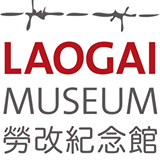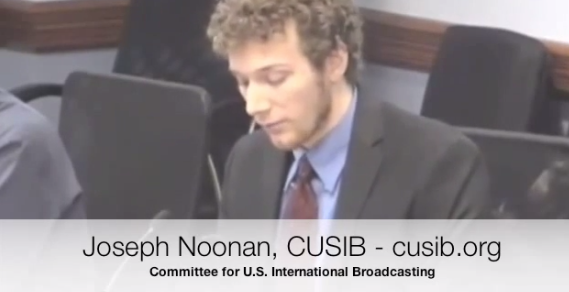BBG Watch Media
 The Laogai Research Foundation (LRF) established by Laogai survivor Harry Wu has reported on the Committee for U.S. International Broadcasting (CUSIB – cusib.org) appeal to the Broadcasting Board of Governors (BBG) not to abandon traditional media, such as shortwave and medium wave radio and satellite TV, since they are effective against growing Internet censorship in China.
The Laogai Research Foundation (LRF) established by Laogai survivor Harry Wu has reported on the Committee for U.S. International Broadcasting (CUSIB – cusib.org) appeal to the Broadcasting Board of Governors (BBG) not to abandon traditional media, such as shortwave and medium wave radio and satellite TV, since they are effective against growing Internet censorship in China.
“CUSIB called on BBG not to order radio or TV cuts in providing unbiased news from the United States to millions of disadvantaged and repressed individuals and groups around the world,” LRF reported.
Speaking on behalf of CUSIB, Joseph Noonan said that “while new media outreach is absolutely essential and also needs to be expanded, the United States must not forget about those who cannot use or cannot afford digital media because of fear of monitoring, inability to purchase electronic devices due to poverty, or inability to use them to get uncensored news because of China’s Internet restriction tools, such as the ‘Great Firewall’ and the ‘Great Cannon.’”
Joseph Noonan is the son of CUSIB’s Executive Director Ann Noonan who is also LRF board member.
The Committee for U.S. International Broadcasting (CUSIB – cusib.org) is an independent, nongovernmental organization which supports free flow of uncensored news from the United States to countries without free media.
The Laogai Research Foundation gathers informations on and raises public awareness of human rights violations in the Laogai, China’s prison system. LRF’s founder, Mr. Harry Wu, also serves on CUSIB’s Advisory Board. LRF opened the Laogai Museum in Washington, DC in 2008.
In China’s vast system of prisons and detention facilities in which inmates are forced to labor and endure Communist Party political indoctrination some prisoners have been able to listen surreptitiously to Radio Free Asia (RFA) and Voice of America (VOA) Chinese broadcasts using smuggled radios. Millions of poor rural Chinese cannot afford the Internet where access to RFA and VOA websites is in any case blocked by the Chinese authorities.
A recent Chinese political prisoner, blind human rights campaigner Chen Guangcheng who now lives in exile in the United States, had reported listening to RFA and VOA while he was a prisoner in China.
Speaking at the same BBG meeting in Washington on April 29, 2015, BBG Chairman Jeff Shell said that “the ‘Great Cannon’ is actually a more proactive tool that goes on even if you’re on an unrestrictive site” in China. “If you’re doing something that the Chinese government deems to be against their interests, it [the ‘Great Cannon’] actually shuts down what you are accessing and what you are working on, so it’s a far more scary tool for freedom of expression than just the ‘Firewall’ that is [also] restrictive,” Jeff Shell observed.
The Broadcasting Board of Governors serves as a bipartisan board to oversee all U.S. civilian, taxpayer-funded media outreach abroad, which includes RFA and VOA.
READ MORE: CUSIB URGES THE CONTINUED BROADCASTING OF MORE TRADITIONAL MEDIA IN LIGHT OF NEW “GREAT CANNON”, Laogai Research Foundation, May 4, 2014
READ MORE: BBG Chair Jeff Shell and CUSIB both warn of ‘Great Cannon’ new China Internet censorship tool, BBG Watch, May 2, 2015
